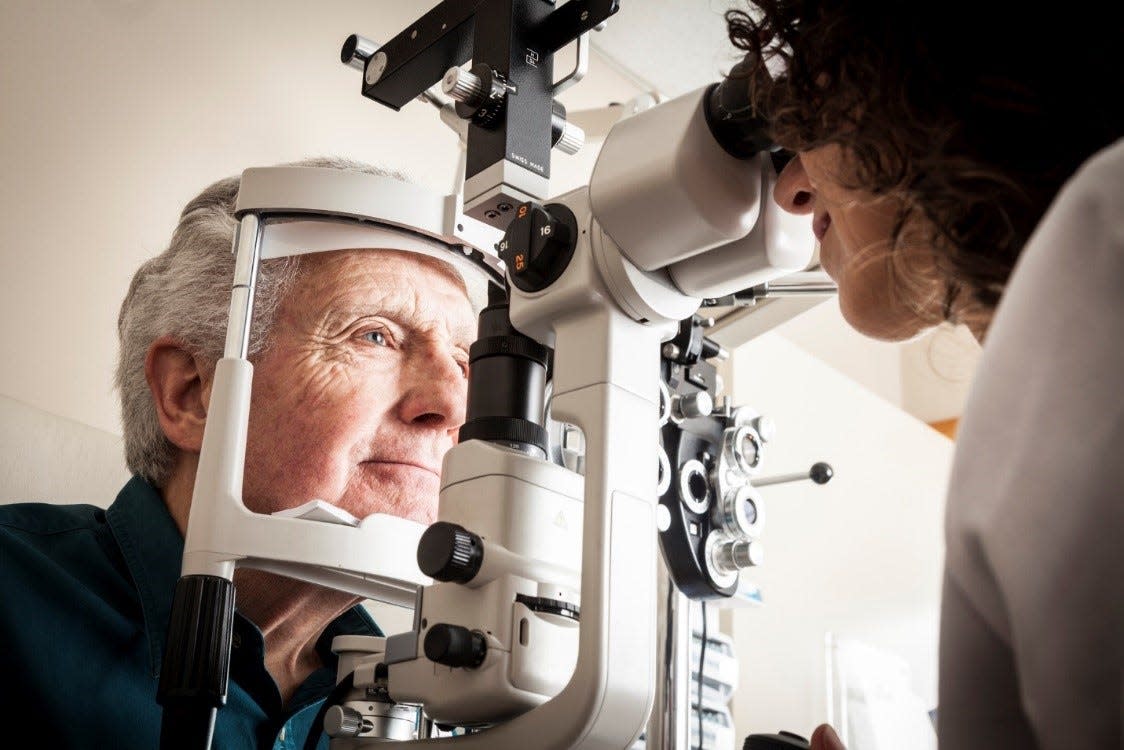Focus on Eyes: Macular degeneration can be scary but options exist to slow it down

Support local journalism. A digital subscription is incredibly affordable and makes you the most informed person around. Click here and subscribe today
Many frightening thoughts may go through your mind when you are first diagnosed with macular degeneration. Here is some basic information that can help to improve your understanding of this common eye condition.
Macular degeneration is an age-related retinal disease that affects about 20 million Americans.
About 80 to 90% of people with macular degeneration have the dry form which causes gradual deterioration of the macula or the central retina, thus affecting the central vision.
They may need brighter light to read, or small prints may be difficult to see.
Night driving becomes more challenging. Fortunately the visual symptoms from dry macular degeneration are usually mild and progress slowly.
Dr. Ho's previous columns:
Those two are linked? Did you know stomach issues can also have effects on your eyes?
Eye-ioneers: Spotlighting three influential Black ophthalmologists for Black History Month
Middle age issues: Have you turned 40 and can't see up close any more? It's likely Presbyopia
About 10-20% of macular degeneration is the wet form due to blood vessels that leak blood or fluid into the macula. It causes sudden change in central vision. The symptoms may include central gray or blind spot and visual distortion such as bending of straight lines.
The diagnosis of macular degeneration is through examination of the retina after pupillary dilation. The retina in dry macular degeneration has yellow deposits called drusen under the macula. In wet macular degeneration, there is accumulation of blood and fluid inside and under the macula in addition to drusen.
Optical coherence tomography, or OCT, is frequently performed in the evaluation of macular degeneration.
It displaces three-dimensional macular images of retinal thinning, thickening and location of blood or fluid. It helps to monitor the disease progression and response to treatment for macular degeneration.
Fluorescein angiogram is sometimes used in evaluation of wet macular degeneration. An orange colored dye is injected into a vein in the arm. A special camera takes pictures of the retina as the dye travels to the eye. The photographs identify the leaky blood vessels that require treatment.
People with dry macular degeneration can benefit from vitamin supplements, healthy diets, regular exercise and cigarette cessation. Research shows a combination of antioxidant vitamins and minerals known as AREDS 2 may decrease the risk of visual loss in moderate and severe macular degeneration.
The AREDS 2 formula includes:
500 milligrams of Vitamin C
400 International Units of Vitamin E
10 milligrams of Lutein
2 milligrams of Zeaxanthin
80 milligrams of Zinc
2 milligrams of Copper
In wet macular degeneration, drugs that block a protein known as vascular endothelial growth factor (VEGF) result in shrinkage of leaky blood vessels in the macula. These anti-VEGF drugs including Avastin, Lucentis and Eylea are injected inside the eye about every 6-8 weeks.
They help to stabilize or sometimes improve vision in many people with wet macular degeneration.
A new anti-VEGF drug, Vabysmo has recently been approved by the FDA which is effective for more than three months, so less injection will be needed.
Research in immune modulation of complement cascade, gene therapy and stem cell bring hopes for more effective treatments for both wet and dry macular degeneration.
For now, to prevent visual loss from macular degeneration is to have regular eye examination and healthy living.
Dr. Frederick Ho, the medical director of Atlantic Eye MD and Atlantic Surgery and Laser Center, is a board certified ophthalmologist. Atlantic Eye MD is located at 8040 N. Wickham Road in Melbourne. To make an appointment please call (321) 757-7272. To learn more visit AtlanticEyeMD.com.
This article originally appeared on Florida Today: Here's what you should know about macular degeneration

